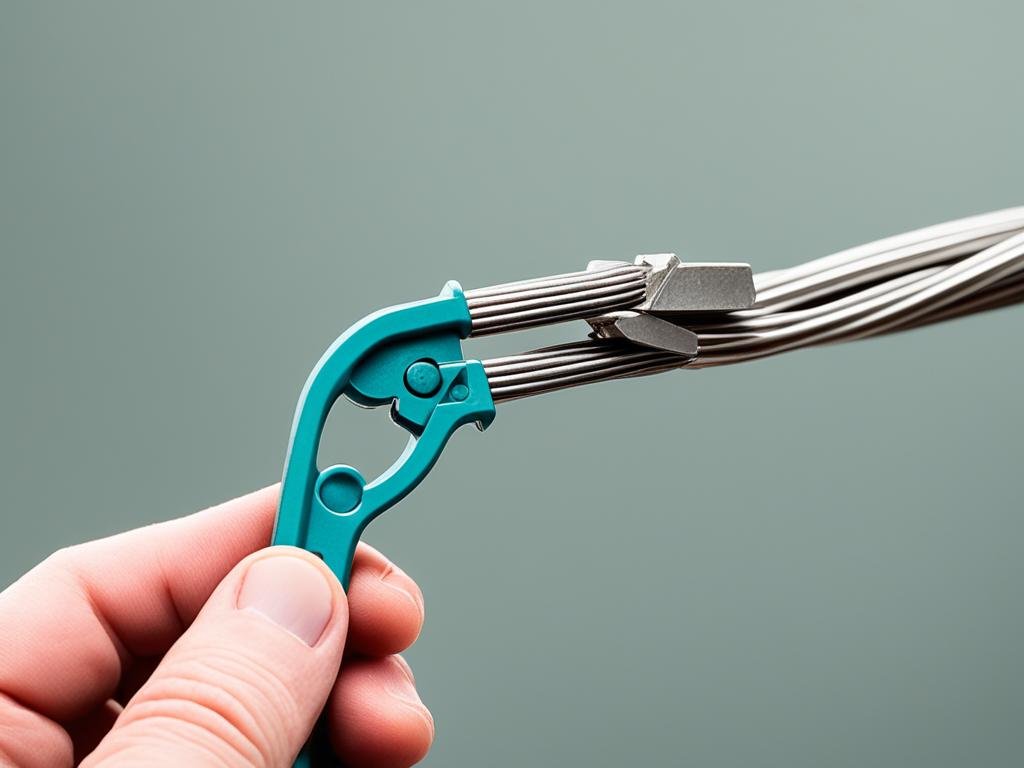
Welcome to Devil n Dove, where every creation tells a story. We invite you on a creative journey, diving into the world of jewelry making and crafts. With each project, we embrace curiosity, learn new techniques, and grow as artists. From the first sketch to the final piece, you’ll become a part of our adventurous process.
At Devil n Dove, inspiration is our guiding force. We believe in the power of creativity to ignite the soul, and we want to share that spark with you. By subscribing and enabling notifications, you’ll enter a world of inspiration, where you can explore our latest creations, discover new ideas, and stay updated on our artistic adventures.
Whether you are a seasoned jewelry maker or a novice crafter, Devil n Dove is a place for everyone. Our journey is about more than just the end result; it’s about the joy of learning, the excitement of experimenting, and the satisfaction of seeing a vision come to life. We invite you to join us and unleash your own creativity.
Support us at www.devilndove.com or visit our store at www.devilndove.online to explore our collection of unique and meaningful jewelry.
Key Takeaways:
- Embrace curiosity and dive into the world of jewelry making and crafts with Devil n Dove.
- Subscribe and hit notifications to stay inspired and be part of our creative journey.
- Every creation at Devil n Dove tells a unique story.
- Support Devil n Dove by visiting our website or online store.
- Join us in unleashing your own creativity and learning new techniques along the way.
Coin Cleaning Methods
When it comes to cleaning coins that are not valuable or collectible, there are several methods you can utilize. These techniques will help you maintain the surface of your coins and keep them looking their best. Let’s explore some effective coin cleaning methods:
Vinegar and Salt Solution
The first method involves using a solution of white vinegar (or lemon juice) and salt. Here’s how you can do it:
- Combine 1 cup of vinegar with 1 tablespoon of salt in a jar.
- Pour the solution into a shallow plastic container.
- Add the coins to the container, ensuring they are fully submerged.
- Wait for about 15 minutes.
- Remove the coins and gently wipe them with a cloth or paper towel.
If the oxidation doesn’t come off completely, you can soak the coins for an additional five minutes. This method is suitable for non-collectible or valuable coins, but be cautious and do not use it on coins of higher worth.
Baking Soda Paste
Another effective method involves creating a paste using baking soda and water. Follow these steps to clean your coins:
- Create a paste by mixing baking soda with a small amount of water.
- Apply the paste to the coins, ensuring they are covered evenly.
- Gently scrub the coins with an old toothbrush.
- Rinse the coins thoroughly to reveal their shiny surfaces.
Remember, these techniques are suitable for non-collectible or valuable coins and should not be used on coins of higher worth.
Alternative Methods
If you prefer to explore alternative methods for cleaning coins, here are a few options to consider:
- Soaking coins in warm water mixed with liquid dish detergent can help remove light dirt and grime.
- Scrubbing low-value coins with baking soda and vinegar, lemon juice and salt, or ketchup can help break apart tarnish.
- For tough tarnish, soaking the coins in hydrogen peroxide or cola can be effective.
- In commercial cleaner solutions, dipping the coins for a short period can remove heavy tarnish. However, always wear protective gear when using such solutions, as they can be acidic and potentially harmful.
Please note that before attempting any cleaning method, consider the value and condition of your coins to ensure you make the right choice.
Remember, maintaining the surface of your coins is important for their longevity and visual appeal. Use these coin cleaning methods to keep your collection in top shape and showcase their beauty for years to come.
| Coin Cleaning Method | Pros | Cons |
|---|---|---|
| Vinegar and Salt Solution | – Simple and easy to prepare – Removes oxidation effectively |
– Not suitable for valuable coins – May require additional soaking time |
| Baking Soda Paste | – Safe for non-collectible coins – Gentle on the surface |
– Not recommended for higher-value coins – Requires time and effort to apply and rinse |
| Alternative Methods | – Can be effective for light dirt and tarnish – Convenient options with household items |
– May not be suitable for all types of coins – Results may vary depending on the condition of the coin |
Numismatic Conservation and Preservation Tips
For collectors and those interested in preserving the condition of their coins, it’s crucial to practice numismatic conservation techniques. At Devil & Dove Collectibles, we understand the importance of maintaining the value and historical significance of your coins. Here are some coin preservation tips to help you keep your collection in pristine condition:
Handle Coins with Care
When handling coins, always hold them between your thumb and index finger to avoid damage. The natural oils and acids from your skin can leave marks or smudges on the coin’s surface. We recommend wearing gloves made of cotton or nitrile when cleaning or handling collectible coins to prevent any accidental damage.
Avoid Moisture
Moisture can be detrimental to the condition of your coins, causing discoloration or even corrosion. It’s crucial to keep your coins dry and avoid exposing them to saliva or other sources of moisture. If your coins come into contact with moisture, gently pat them dry with a soft cloth or air-dry them in a controlled environment.
Store in Acid-Free and PVC-Free Holders
Proper storage is essential for preserving the quality of your coins. Store collectible coins in acid-free and PVC-free holders to protect them from environmental elements that can cause damage. These holders provide a secure and protective barrier, ensuring the long-term preservation of your valuable coins.
Avoid Harsh Chemicals and Abrasive Cleaners
When cleaning coins, it’s important to avoid using harsh chemicals or abrasive cleaners, as they can cause abrasions or chemical reactions that diminish the coin’s value. Stick to mild cleaning solutions specifically designed for coin cleaning or consult with a professional numismatist for guidance on safe cleaning practices.
Seek Professional Help for Valuable Coins
If you have valuable or highly graded coins in your collection, it’s advisable to seek professional help and advice for cleaning and preservation.
Support us at www.devilndove.com or visit our online store at www.devilndove.online.
Alternative Coin Cleaning Methods
If you prefer to use alternative methods to clean coins, there are several options to consider. Here are some safe and effective coin cleaning methods that you can try:
- Soaking coins in warm water mixed with liquid dish detergent can help remove light dirt and grime. Gently wash each coin with a soft toothbrush before rinsing and drying them.
- Scrubbing low-value coins with baking soda and vinegar, lemon juice and salt, or ketchup can help break apart tarnish.
- For tough tarnish, soaking the coins in hydrogen peroxide or cola can be effective.
- In commercial cleaner solutions, dipping the coins for a short period can remove heavy tarnish. However, it’s important to wear protective gear when using such solutions, as they can be acidic and potentially harmful.
Always be cautious when choosing alternative methods and consider the value and condition of your coins before attempting any cleaning. If you’re unsure about the proper cleaning method for a specific coin, it’s best to seek professional advice to avoid causing damage.
Avoiding Common Mistakes
When it comes to coin cleaning, it’s important to avoid common mistakes that can damage your coins. Some of these mistakes include:
- Using abrasive cleaners or harsh chemicals that can scratch or corrode the surface of the coin.
- Scrubbing coins too vigorously, which can wear down the design and details.
- Using improper storage methods that expose the coins to moisture or humidity.
By following safe coin cleaning methods and avoiding these mistakes, you can effectively clean your coins while preserving their value and appearance.
| Method | Description |
|---|---|
| Soaking in warm water and dish detergent | Helps remove light dirt and grime |
| Baking soda and vinegar | Effective for breaking apart tarnish |
| Lemon juice and salt | Another option for breaking tarnish |
| Ketchup | Can be used to scrub low-value coins |
| Hydrogen peroxide | Useful for tackling tough tarnish |
| Cola | Another option for removing stubborn tarnish |
Remember, always exercise caution when using alternative coin cleaning methods and consult professionals if you’re unsure about the best approach. Cleaning coins safely ensures their long-term preservation and enhances their appearance for years to come.
Support us at www.devilndove.com or our store at www.devilndove.online.
Conclusion
Cleaning and preparing the coin surface can be a enjoyable and rewarding activity for us coin enthusiasts. However, it is crucial to approach it with caution and responsibility. Whether you are cleaning non-collectible coins for fun or practicing numismatic conservation techniques, the key is to handle the coins delicately and use mild cleaning solutions. If you are uncertain about the value or collectibility of a coin, it’s always a good idea to seek professional advice before proceeding with cleaning. Preserving the historical significance and value of our coins is of utmost importance. To maintain their condition, remember to store your coins properly in acid-free and PVC-free holders.
By following these guidelines and taking proper care of our coins, we can ensure that they continue to look their best while retaining their value and historical significance. Supporting us at www.devilndove.com or visiting our store at www.devilndove.online
Let’s continue to enjoy the art and history of coins while preserving them for future generations to appreciate.
FAQ
How can I clean coins that are not valuable or collectible?
One simple method involves using a solution of white vinegar (or lemon juice) and salt. Combine 1 cup of vinegar with 1 tablespoon of salt in a jar, then pour the solution into a shallow plastic container. Add the coins to the container, making sure they are fully submerged, and wait for about 15 minutes. Remove the coins and wipe them with a cloth or paper towel. If the oxidation doesn’t come off, you can soak the coins for an additional five minutes. Alternatively, you can create a paste using baking soda and water, apply it to the coins, and scrub them gently with an old toothbrush. Rinse the coins to reveal their shiny surfaces. It’s important to note that these methods are suitable for non-collectible or valuable coins and should not be used on coins of higher worth.
How can I practice numismatic conservation techniques to clean and preserve valuable coins?
When handling collectible coins, it’s crucial to handle them with care, holding them between your thumb and index finger to avoid damage. Wear gloves to prevent smudging or marking the coin’s surface with fingerprints. Keep coins dry and avoid exposing them to saliva as moisture can discolor them. Store collectible coins in acid-free and PVC-free holders to protect them from damage. Avoid using harsh chemicals or abrasive cleaners, as they can cause abrasions or chemical reactions that diminish the coin’s value. Seek professional help and advice for cleaning valuable or highly graded coins.
What are some alternative methods to clean coins?
Soaking coins in warm water mixed with liquid dish detergent can help remove light dirt and grime. Gently wash each coin with a soft toothbrush before rinsing and drying them. Scrubbing low-value coins with baking soda and vinegar, lemon juice and salt, or ketchup can help break apart tarnish. For tough tarnish, soaking the coins in hydrogen peroxide or cola can be effective. In commercial cleaner solutions, dipping the coins for a short period can remove heavy tarnish. However, it’s important to wear protective gear when using such solutions, as they can be acidic and potentially harmful. Always be cautious when choosing alternative methods and consider the value and condition of your coins before attempting any cleaning.
Source Links
RELATED POSTS
View all



